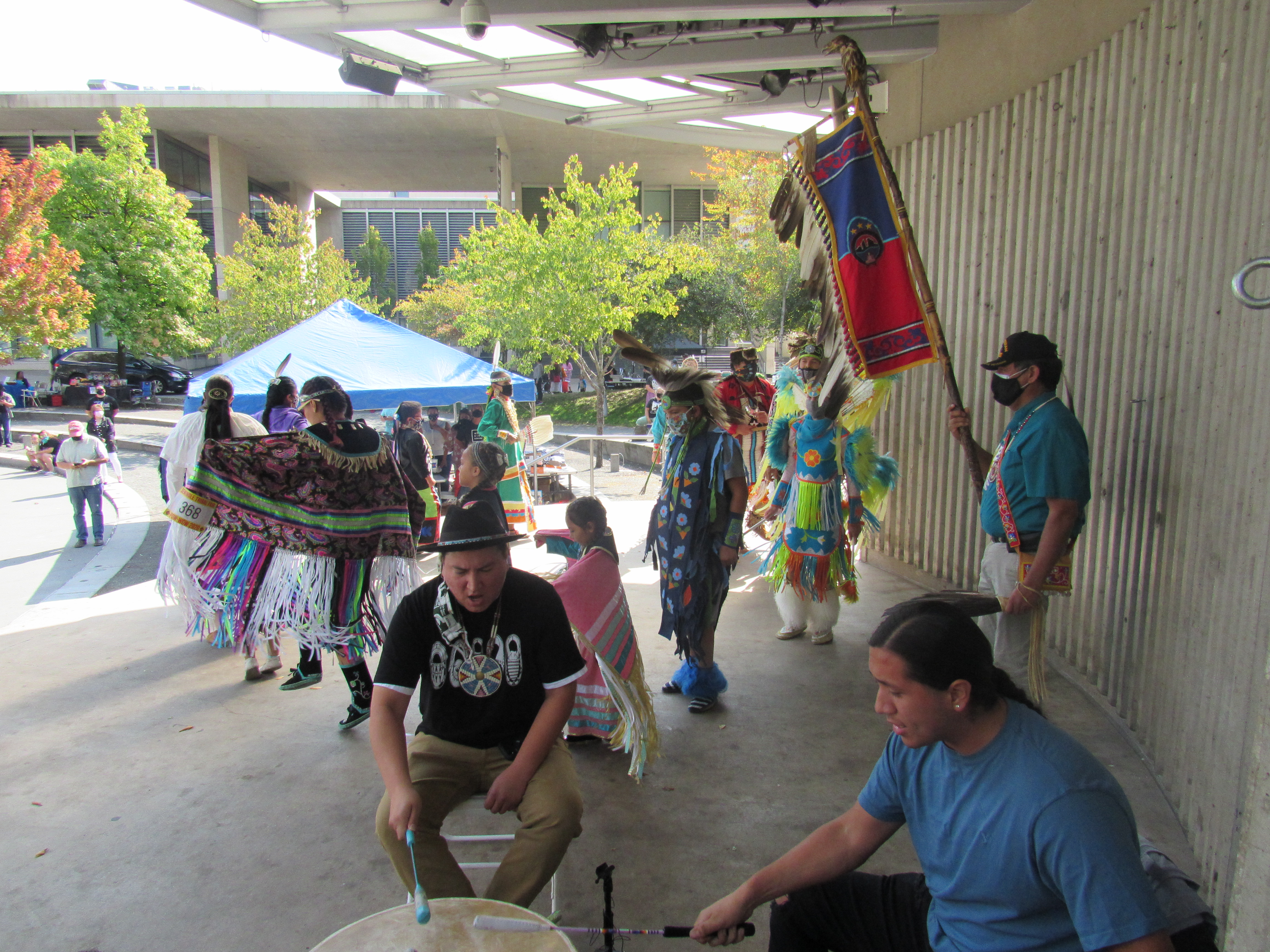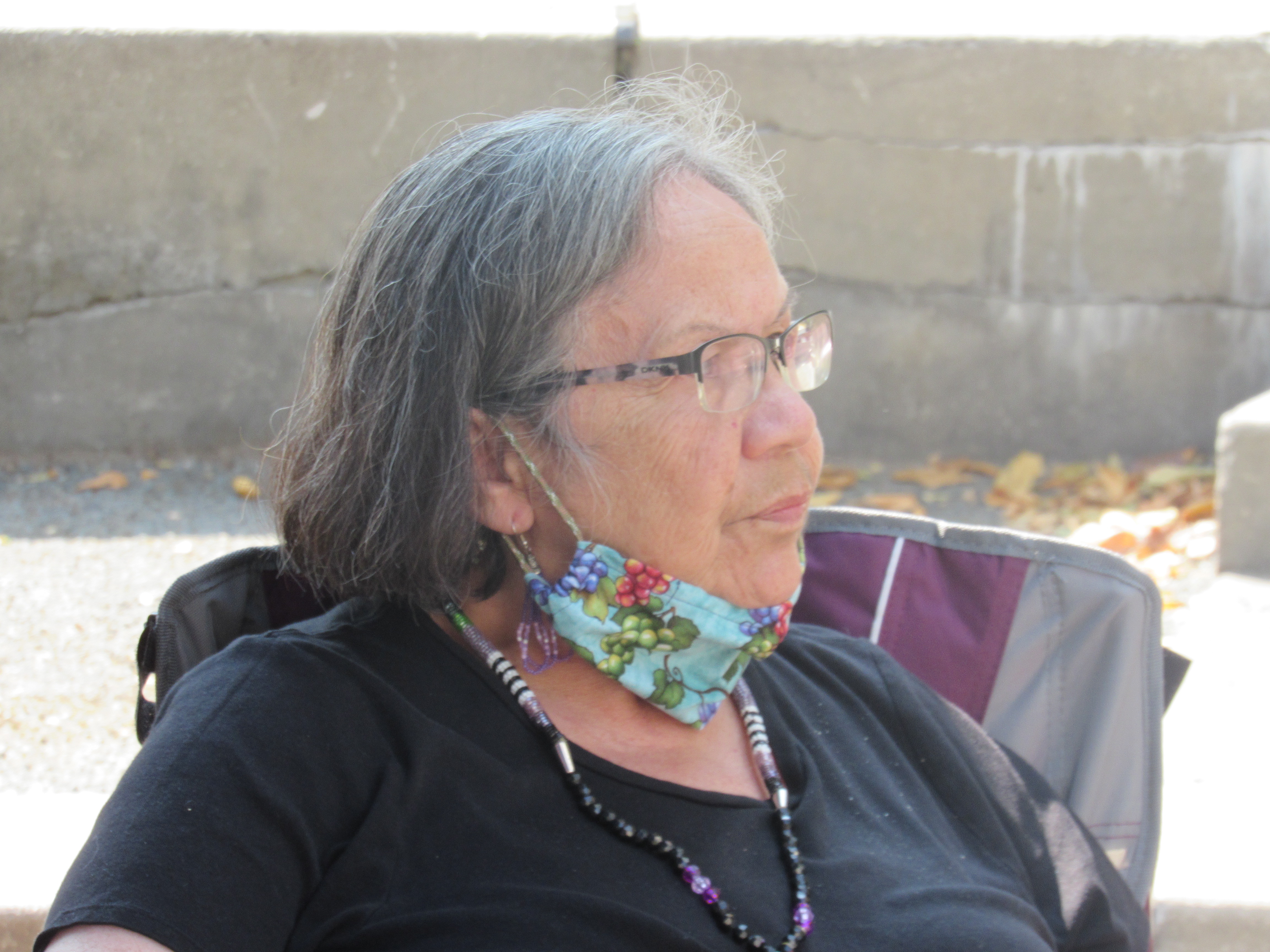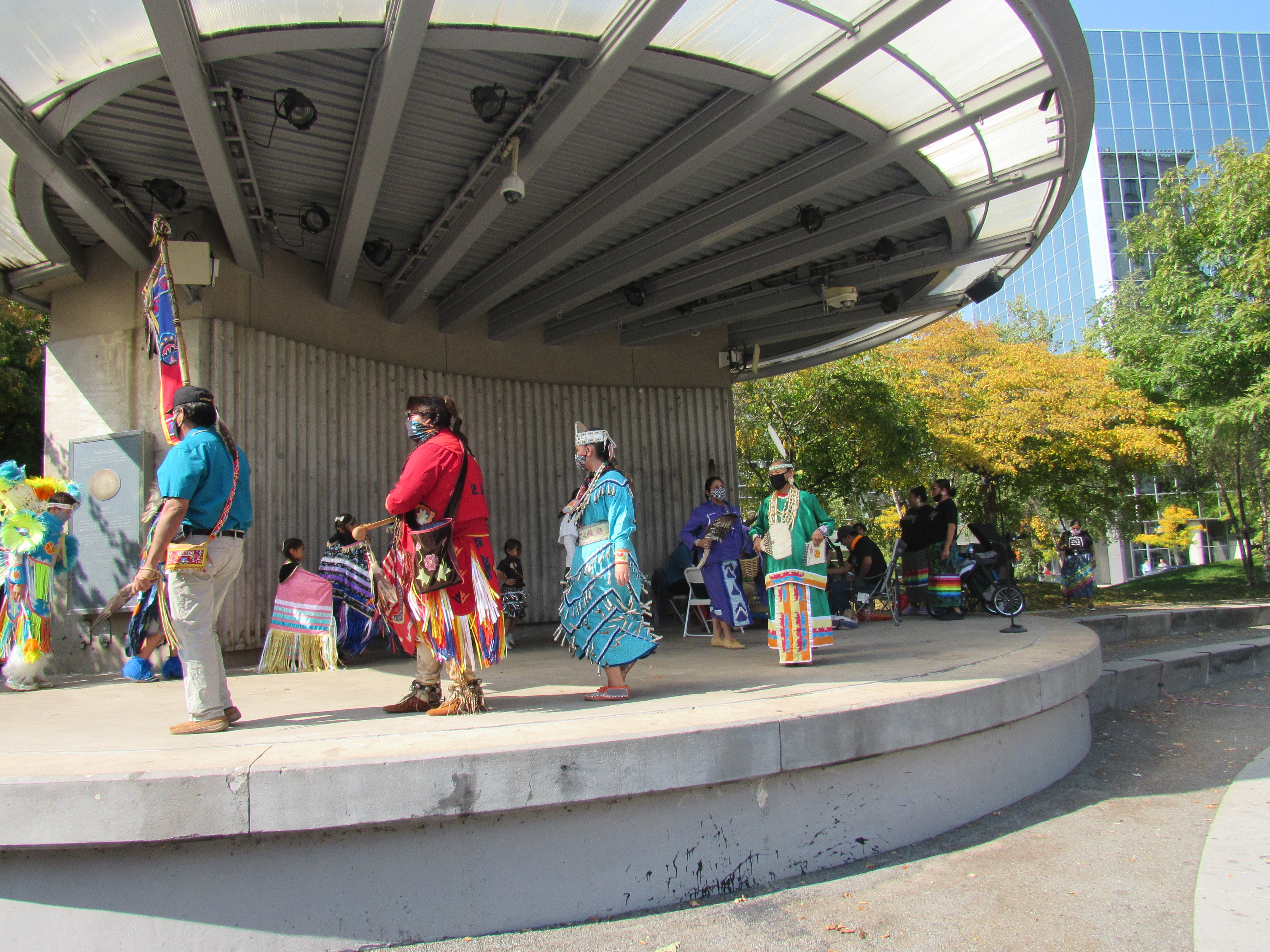
- Details
- By Levi Rickert
GRAND RAPIDS, Mich. — Under a blue autumn sky, several dozen American Indians celebrated Michigan Indian Day at Rosa Parks Circle in downtown Grand Rapids, Mich. on Friday.
Rosa Parks Circle, named for the Civil Rights Movement icon, was an appropriate place to celebrate the culture and heritage of Michigan’s first peoples. The event began with prayer as downtown workers intersected with American Indians representing numerous tribes.

The fourth Friday in September of each year is known as Michigan Indian Day. This designation dates back to 1974 when the Michigan legislature enacted Public Act 30. In 2007, the Michigan House of Representatives said: “Michigan Indian Day is an excellent opportunity for Michigan citizens to better understand and appreciate the many contributions that people of Native American descent have made to our state.”
Earlier this week, the Grand Rapids Public Schools sent out a system-wide announcement to inform parents and guardians that Friday would be Michigan Indian Day.
The crowd heard from various speakers during the afternoon program.
Rosa Parks Circle is located directly across the street from the 18-story McKay Tower, which was purchased in January 2020 by Gun Lake Investments, the economic development corporation of the Match-E-Be-Nash-She-Wish Band of Potawatomi Indians of Michigan (commonly known as the Gun Lake Tribe) and Waséyabek Development Company, the economic development corporation of the Nottawaseppi Huron Band of Potawatomi.
Nancy Smit, secretary of the tribal council for the Nottawaseppi Huron Band of Potawatomi, said the McKay Tower sits on pathways of her ancestors.
“Michigan Indian Day is a special day for us to gather, share and celebrate together, but more than that, it is meant to continue to bring about this better understanding to the larger stage,” said Belinda Bardwell (Little Traverse Bay Bands of Odawa Indians), Grand Valley State University Native Student Services coordinator.

Bernadece Boda (Little Traverse Bay Bands of Odawa Indians) spoke on the importance of making sure all American Indians are counted in the 2020 census.
Spectators were treated by a local American Indian drum and dancers dressed in their traditional regalia danced in an inter-tribal exhibition. Patrons purchased American Indian food, including Indian tacos, fry bread and wild rice soup.
Local artisans sold their art, such as black-ash baskets.
Michigan is home to 12 federally recognized tribes and six state recognized tribes.
The event was organized by Anishinaabe Circle, with support from the W.K. Kellogg Foundation.
More Stories Like This
Native News Weekly (August 25, 2024): D.C. BriefsNavajo Nation Mourns the Passing of Former Vice President Rex Lee Jim
Deb Haaland Earns Endorsement From Communications Workers of America Local 7076
University Soccer Standout Leads by Example
Two Native Americans Named to Democratic Congressional Campaign Committee's“Red to Blue” Program
Help us defend tribal sovereignty.
At Native News Online, our mission is rooted in telling the stories that strengthen sovereignty and uplift Indigenous voices — not just at year’s end, but every single day.
Because of your generosity last year, we were able to keep our reporters on the ground in tribal communities, at national gatherings and in the halls of Congress — covering the issues that matter most to Indian Country: sovereignty, culture, education, health and economic opportunity.
That support sustained us through a tough year in 2025. Now, as we look to the year ahead, we need your help right now to ensure warrior journalism remains strong — reporting that defends tribal sovereignty, amplifies Native truth, and holds power accountable.
 The stakes couldn't be higher. Your support keeps Native voices heard, Native stories told and Native sovereignty defended.
The stakes couldn't be higher. Your support keeps Native voices heard, Native stories told and Native sovereignty defended.
Stand with Warrior Journalism today.
Levi Rickert (Potawatomi), Editor & Publisher

